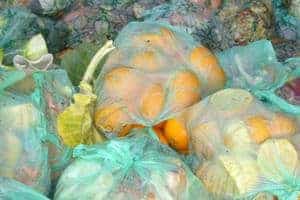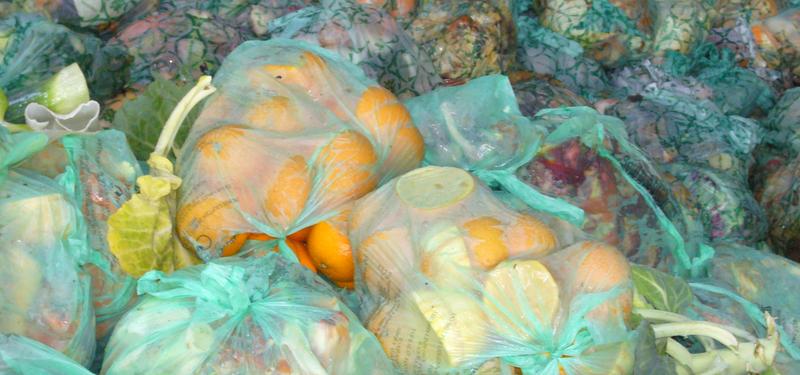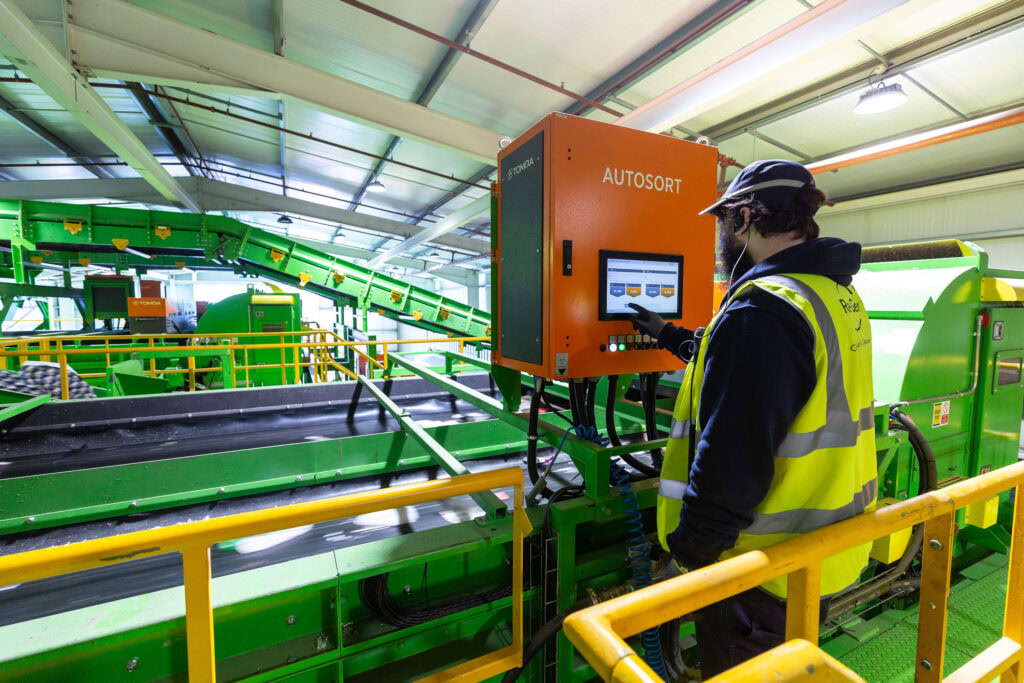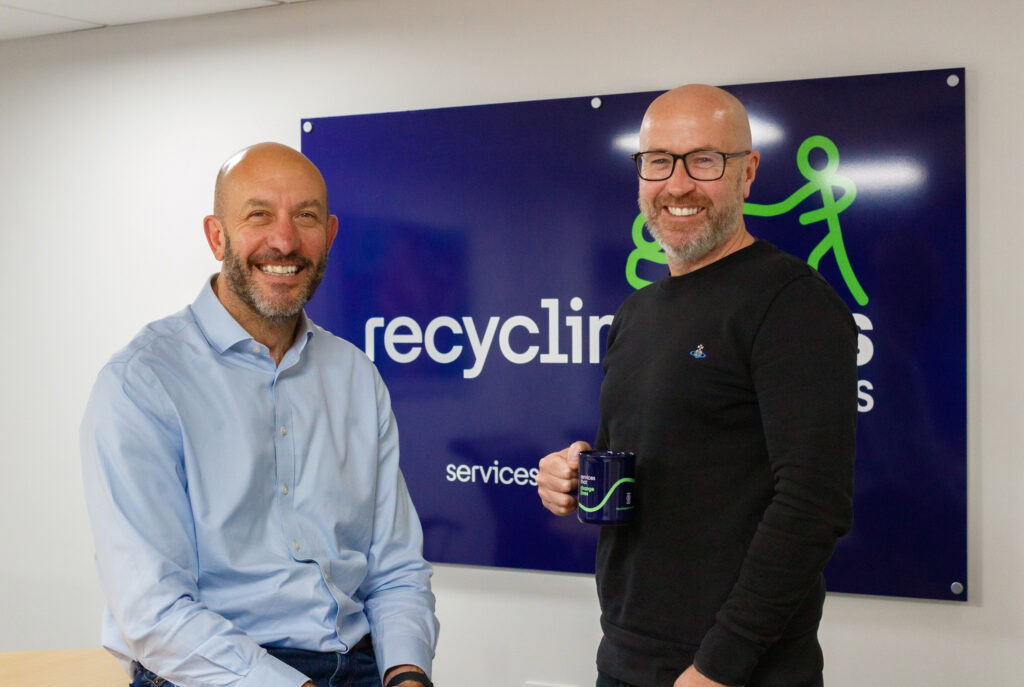
Local authorities have raised concerns about the costs of the bags and the composting sector have raised concerns about potential for plastic contamination to enter the waste stream if the public start collecting their food waste in all types of plastic bags.
Both parties agree that an effective communication campaign is necessary for the successful rollout of food waste collections using biodegradable bags.
Introducing a food waste recycling service to householders can lead to negative press coverage and public concerns over unpleasant odour and problems with food waste attracting flies. Using compostable bags can go someway to help overcome these problems.
Lining the kitchen caddy or kerbside container with a starch-based compostable liner can help to confine any odours within the contents of the bag, making it more acceptable to have a recycling container in the kitchen. Householders using liners will not have to clean their caddies as often and there is less likelihood of the waste attracting vermin.
And the advantages of having an inner bag aren't restricted to householders. David Stowe, project officer at Preston city council, has been running food waste trials with BioBags – bioplastic liners manufactured by Italian firm Novamount- for the last two years.
He explains they make operations more efficient: “The starch bags speed up the collection process as they are strong enough to be lifted out the bin and chucked into the truck through access hatches on the side of the vehicles meaning crew members don't have to walk back and forward to the truck.”
Introducing compostable liners also poses the question of whether it is cost effective for local authorities to provide them to householders or simply to encourage their use.
Eastleigh
Eastleigh borough council has been looking at the cost of introducing biodegradable liners during its food waste collection trials. Initially the council provided free liners to 700 residents in the first phase of its six month food waste trials in Hedge End.
When the trials ended in June the council informed residents that while collections would continue, biodegradable bags would not be issued. Residents were advised the waste could be placed in the food waste bin either loose, wrapped in newspaper or they could purchase the biodegradable liners from the local Post Office.
The second phase of the food waste trial commenced in Bishopstoke in May 2007 the council only sent out a complimentary roll of liners to each household. Residents were advised from the outset of the trial that additional bags would not be provided and the promotional literature outlined the alternatives to the bio degradable bags.. The council worked in partnership with the biodegradable bag suppliers and local retailers to provide local retail outlets.
Maria Massarella, research and development officer (recycling) at Eastleigh says: “Tonnage has continued to increase in the second trial area but as the residents are still likely to be using their complimentary roll of liners we will have to wait until the end of the trial to assess the impact of withdrawing the free bags .”
The aim of trialling two different types of roll-outs was to assess resident's perceptions of the bags, containers and collection service. She said that the trials have revealed that: “the cost of providing bags continually could not be absorbed into the current waste collection budget and, as we pointed out to the residents within the pilot area bags do not have to be used.”
Preston city council on the other hand, has been providing free liners for the 7,500 households participating in its food waste trials since 2005. Project officer David Stowe insists that the scheme is economical he says that local authorities can get significant discounts by buying in bulk. He also explains that providing the liners for free affects participation. Indeed, in a survey conducted by the council last year, 31% of residents revealed that they “wouldn't bother to participate if the council didn't supply the bags”.
Mr Stowe also advised that local authorities buying in bulk can get significant discounts and that getting collection crews to deliver new rolls to residents also helps cut costs rather than having a separate delivery service.
Joined up thinking
However, the local authority side is half of the debate on compostable liners. To ensure a successful introduction of the bags, local authorities need to work closely with the food waste processor to ensure they can process the material. Dr Stephen Merry, general manager, SITA organics recommends that local authorities run trials to ensure the liners compost satisfactorily and won't leave a residue.
Emily Nicholls, technical manager at the Composting Association says that local authorities introducing liners should allow for the cleaning up of contamination within their contracts. For example, equipment such as a wind sifter which extracts light fractions of plastic from the compost once it is processed, might need to be purchased as introducing biodegradable bags has the potential to introduce some element of contamination from conventional plastic bags.
Fear of bringing plastic contamination into the compost stream and reducing the value of the finished compost product is a big issue for the composting industry. Dorset-based Eco Composting takes both bagged and unbagged kitchen caddy waste; Trelawney Dampney, founder of the company says: “Operationally it does not make much difference to the processing and composting of the waste whether it is bagged or not.
However Mr Dampney continues to say that ” if it is not bagged then this reduces the chance of getting rogue plastic bags into the compostable product so we would rather the material comes into us without being bagged.”
Standards and communications
To help the processing of the liners, The Composting Association says that local authorities should ensure the bags they chose are fully compliant with European compostable packaging standard EN13432 -the standard recognised to mean the product biodegrades fully within the composting process.
Emily Nicholls, technical manager at The Composting Association explains the importance of clear labeling: “The 'compostable seedling' logo is key because it is easier to see and recognise than just 'compostable' text.
It should be printed all over the liner/bag, or as a continuous band. Where the local authority's householder education campaign provides clear messages in connection with the logo, this should lead to lower levels of non-compostable packaging/plastics in the biowastes collected.”
Indeed, clear communications are the key to a successful introduction of compostable liners as Dr Matt Hill, organics project manager, at Recycling Action Yorkshire says: “householders have to understand that the biodegradable bags cannot be replaced with non-degradable plastic bags for food waste collection, and the biodegradable bags cannot be recycled in any plastic recycling scheme.”
Mr Stowe at Preston city council says taking a firm stance from the beginning of the trial is important: “We won't collect food waste containers with any type of plastic contamination and our operators have been trained to been trained to reject anything other than the bags we supply.”
Charles Wright, senior communications officer at Haringey council, which introduced BioBags in response to a demand from residents for a liner for food waste collections has also found that biodegradeable bags help to increase participation in the food waste trials.
He says: “Anecdotal feedback from our collection crews indicates that more residents are using the food waste service since the BioBags were introduced and newly-designed leaflets were delivered across the borough. Feedback from residents has also been positive as they now have the choice as to whether to use liners, or to use the food waste box directly.
Future
With the Waste Resources Action Programme choosing to include compostable liners in all 17 of their food waste trials across England, research will soon be available to conclusively prove both the cost and viability of the liners.











Subscribe for free